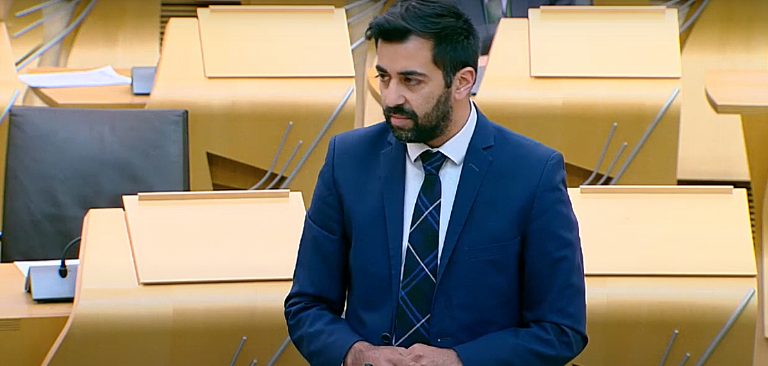Scotland is proceeding with plans to pass a hate speech law criticized by advocates, activists, and opposition in the Scottish parliament as going as far as to criminalize conversations people have in their own homes.
The Hate Crime Bill is drafted and pushed by the ruling SNP party, while Scotland’s Conservatives oppose it as excessive in the way it curtails free expression.
Currently, the bill looks likely to eventually pass, as it just secured a 91 to 29 vote in parliament during the first phase of the legislative procedure. Even though the government said it would consider proposals to amend the bill to address some concerns, specifically to define more precisely what qualifies for “hate speech” and abusive behavior, critics don’t think this goes far enough.
Some of the more troublesome points of the bill, the way it was originally drafted, include sanctioning possession of what’s referred to as inflammatory media (memes, emails, images, and dark humor), as well as social media posts determined by the authorities to be “problematic.” At the same time, the legislation is vague enough to fail to objectively define what “abuse” in terms of speech means.
The phase one vote was preceded by a debate, when SNP member and Scotland’s Justice Secretary Humza Yousaf acknowledged there were concerns about the bill’s chilling effect on free speech, but immediately went on to mention “the chilling effect of hate (speech) crime” perpetrated against sexual, ethnic and racial minorities and religious communities.
However, those criticizing the law are not speaking in favor of allowing “hate speech” to proliferate unchecked, rather, they are warning about how far a broadly-worded legislation like this could go towards undermining free speech, calling the law “fundamentally flawed” and unsalvageable only through minor changes.
Earlier reports detailed what the bill and Yousaf originally had in mind – seeking to criminally prosecute journalists, artists, and private citizens for “abuse” and insults they might utter, or be deemed to utter (thanks to the vagueness of the bill’s wording) including at home.
Condemnation of the bill when it was first unveiled was near universal, save for the ruling party, and included the Catholic Church, academics, and even the police.






















